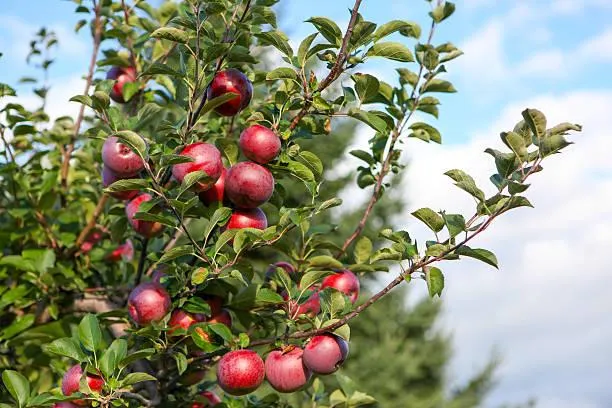R1 billion lost: Cape Town port delays jeopardise apple and pear exports

The Western Cape's apple and pear industry is calling for the urgent privatisation of the Port of Cape Town, citing estimated losses of R1 billion in 2024 due to logistical inefficiencies and delays.
Image: iStock
The Western Cape's apple and pear export industry is sounding the alarm after estimating that logistical bottlenecks and delays at the Port of Cape Town have cost the sector approximately R1 billion in 2024 alone.
Industry leaders are now calling for the urgent fast-tracking of the port’s privatisation to prevent further losses and protect South Africa's market share in key global markets.
The urgent plea was made during a strategic discussion and site visit yesterday between the Western Cape Department of Mobility and key industry players, including Two-a-Day and its logistics partner, Link Supply Chain Management.
The meeting highlighted the critical, time-sensitive nature of fruit exports.
Roelf Pienaar, managing director of Tru-Cape Fruit Marketing, articulated the challenge.
“We work in a complex, time-sensitive value chain. If a vessel to Europe, the United Kingdom, or the Far East is missed, the sale is gone. You don’t get a second chance to deliver on time in a programme-driven market,” said Pienaar.
Pienaar added that the situation poses an existential threat to the industry.
“Logistics is the single biggest risk for us right now. If we can’t get our product out, everything else, from on-farm innovation to market development, is compromised.”
To mitigate delays, Chris Petzer, Two-a-Day’s operations director, explained that containers are often diverted to Port Elizabeth, a costly measure taken to avoid halting on-farm harvesting and packing.
“It’s not sustainable, but sometimes it’s the only option to prevent greater losses,” he said.
Chris Knoetze, managing director of Link Supply Chain Management, a logistics provider for several leading fruit exporters, noted that while some interventions have improved crane productivity, the pace of change remains too slow.
The ongoing inefficiencies, he stressed, have had a direct financial impact and have damaged the industry's reputation.
“When port operations are disrupted, it impacts product quality, increases costs, and damages our credibility with overseas buyers,” Knoetze said, before making a direct call to action.
“We urgently need to fast-track the privatisation of the Cape Town terminal to restore competitiveness.”
In response, the Western Cape Department of Mobility, represented by Corrine Gallant, deputy director-general, confirmed that measures are being taken to address both landside and waterside inefficiencies.
“We are working on both the landside and waterside inefficiencies,” Gallant said.
“We cannot afford more costs in the chain, our focus is on solutions that remove bottlenecks and protect jobs.”
However, industry representatives warned that time is running out. Gerhard van Heerden, also a director at Link Supply Chain Management, stressed the need for urgency from the port itself.
“The farmers, pack-houses, and exporters are investing in efficiency every day,” he said.
“Now we need the same urgency and commitment at the port, because without it, the entire value chain is at risk.”
This sentiment was echoed by Isaac Sileku, Western Cape Minister of Mobility, who emphasised the need for structured collaboration and swift execution to prevent further delays.
“We cannot afford to be reactive. We must have formal agreements and mechanisms in place so that when bottlenecks arise, we know exactly which button to press. Speed of execution is critical, our farmers and exporters cannot wait years for solutions,” Sileku said.
The meeting concluded with a commitment from all parties to a path forward that includes faster execution of port and rail projects, and formal industry-government forums to facilitate direct communication with decision-makers.
Stakeholders agreed that improving the port's efficiency is vital not only for the apple and pear sector, but for the entire provincial economy and South Africa’s global competitiveness.
IOL News
Related Topics: